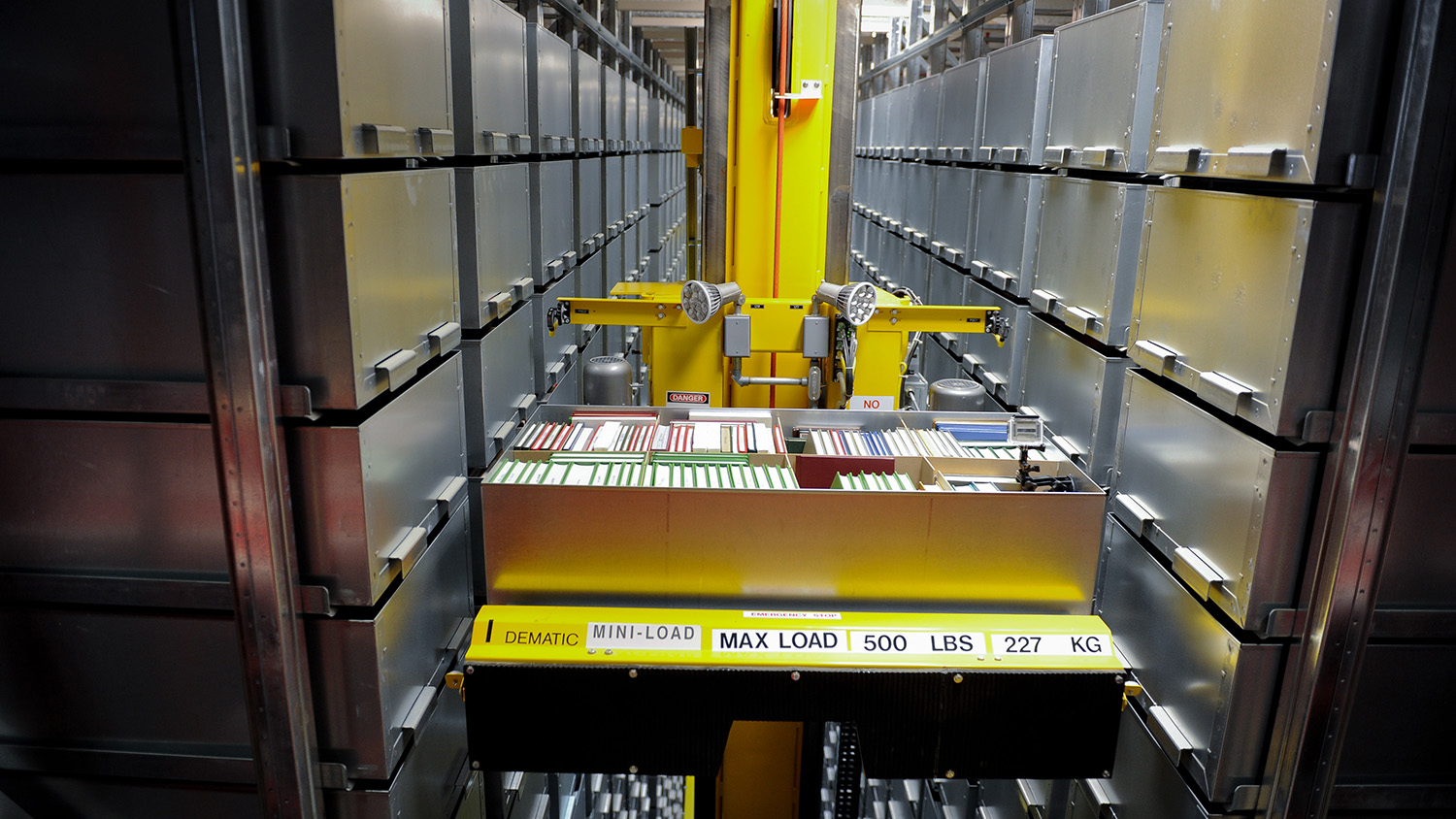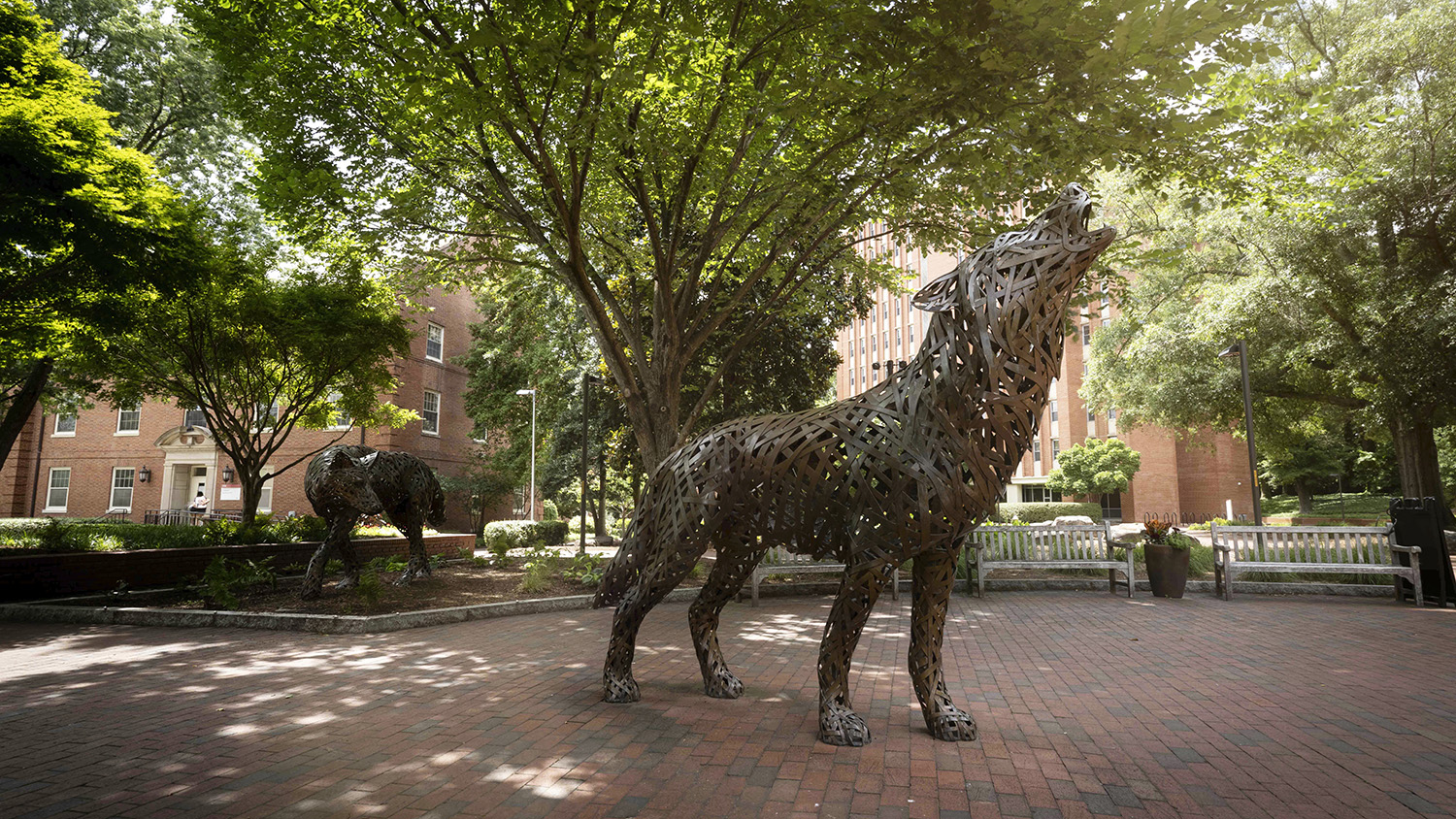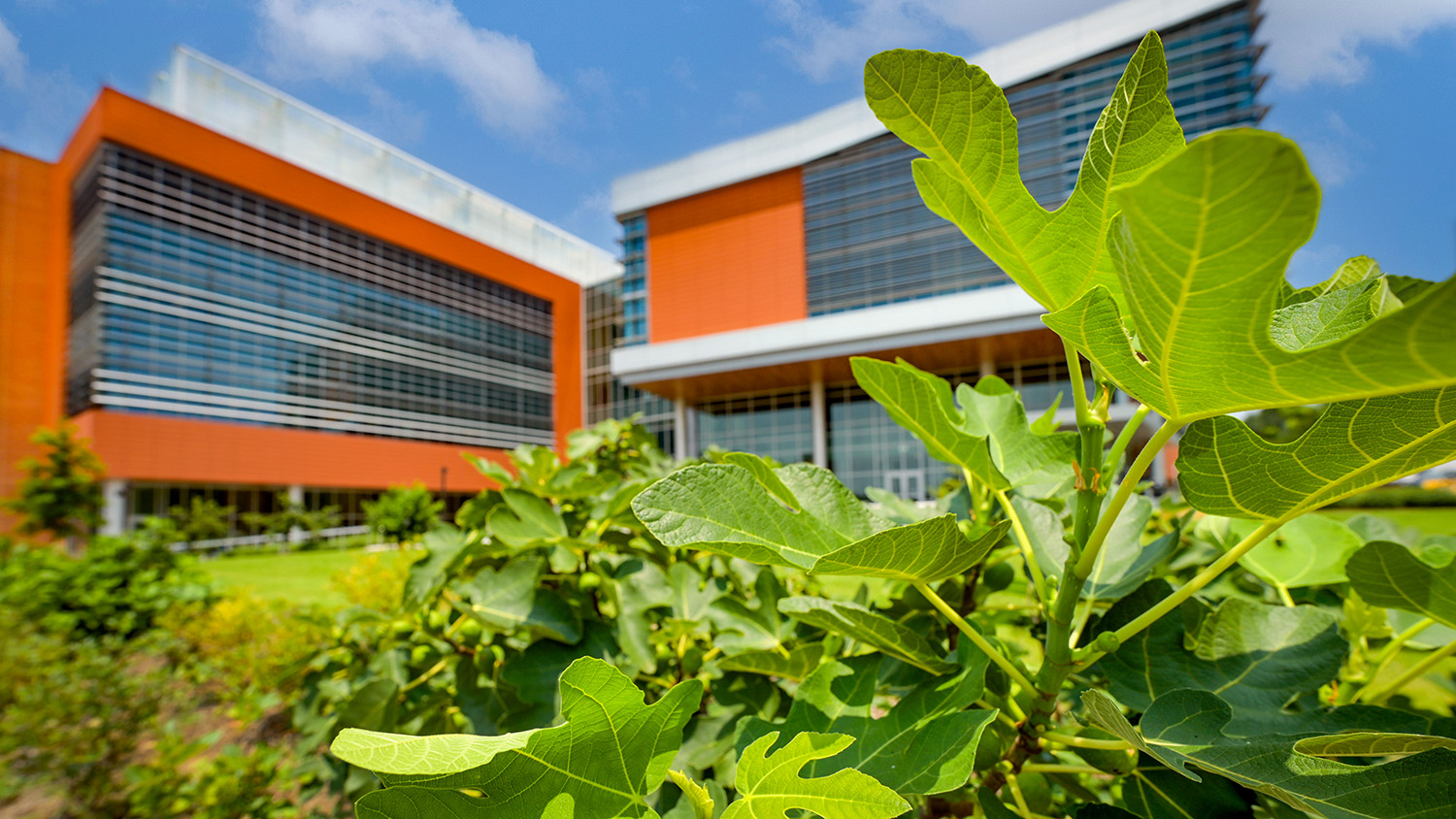Making Faculty Work Public

NC State faculty publish a prolific amount of journal articles, books and research papers every year. The team at the NC State University Libraries plays a key role in helping faculty get their work published and making it available for consumption to a wider audience.
“At every stage of the publication process, we can help,” said Christopher Tonelli, director of external relations for the Libraries. “Our librarians can equip faculty with everything from resources to get started on research to alternative modes of getting their work out to the greater public.”
The university community can view recent books and articles by NC State authors to see their work and learn more about the myriad ways in which faculty think and do in a variety of print and digital methods.
Research Support
NC State librarians can match faculty research to relevant journals or publishers, determine a journal’s impact and influence on a research subject, help make publications more discoverable, meet funder mandates for public access to data and publications, find appropriate data repositories for sharing data associated with publications, and provide assistance with negotiating the terms of a faculty member’s author agreement.
Subject specialist research librarians can also assist faculty members with specific areas of research, from college-specific subjects to information on copyright and fair use, patents and trademarks, and more.
Digital-Specific Support
One unit within the Libraries that supports open research and digital scholarship is the Copyright and Digital Scholarship Center (CDSC). The CDSC provides expertise on the development, creation, sharing and access of new forms of open and collaborative research, scholarship, teaching and learning. The CDSC specializes in analysis of the evolution in the academic publishing ecosystem, including pre-print archives, altmetrics, open science, and academic credit and evaluation.
Librarians within the CDSC assist faculty with author publication contracts for journals and books, new and nontraditional forms of publication, all forms of open access publishing, choosing licenses and identifying an appropriate repository or platform for sharing research works. They also manage the NC State Institutional Repository, which can be utilized to share grey literature (literature produced outside of traditional publishing channels) and research artifacts where an ideal repository doesn’t exist.
Once faculty have work ready to publish, the Libraries can assist with all details of documentation for the publication process. Publishers increasingly require researchers to have an Open Researcher and Contributor identifier (ORCID) when they submit for publication, and the Libraries can help faculty improve their ORCID record.
The Libraries offers a CV service where staff can extract publications from a CV and get many of the works added to an ORCID record. An updated ORCID record helps authors get credit, increase the discoverability of their work, and increase their impact. Faculty simply need to register their ORCID in the Citation Index to get started with the CV service. Many college and department directories use this data to fill in the publication portion of their pages.
Publishing With Open Access
With digital scholarship permeating the academic landscape, open access has become a popular method for the wide-scale publication of faculty work. Open access encompasses cost-free and unrestricted access to scholarship.
“The primary benefit of opening your research, either through a practice like sharing pre-prints or publishing in an open access journal, is the increased visibility of your work online,” said Micah Vandegrift, an open knowledge librarian in the CDSC. “If more people can find, read and cite your work, the potential impact of your research is increased. Many studies have been done on the ‘citation advantage’ of openly accessible works, particularly journal articles, and overall the research agrees — greater access increases the potential for greater impact.”
Other benefits of open access are: contributing to a more equitable and “bibliodiverse” global research environment, increasing the application of research in the public sphere, and quickening the pace at which research advances. The Libraries provide expert consultations, training for individuals or departments, and resource guides on all aspects of academic publishing and open research, including negotiating publishing contracts, how to do open access without paying anyone and sharing multiple research artifacts (papers, data, code, documentation) for maximum impact and reproducibility.
Peer review is also an important part of understanding open access publication.
“It is an essential aspect of how something is understood as “published” in higher education,” said Vandegrift. “With the increasing circulation of academic work online, there are a variety of emerging models for how, and more importantly, when peer review can occur in a research process.”
For example, PREReview is a platform that encourages “collaborative and constructive peer review on preprints,” and the NC State-homegrown platform Researchers.One centers the researcher with the autonomy to disseminate and gather reviews themselves. In the humanities, ModNets offers a peer review process, certification and registry for modernist digital projects that are not long form monographs.
These are just a few examples, but it is important to know that validation (peer review), and certification (publishing), can exist distinctly separate from access. This has been deeply underscored by research in the time of COVID-19.
“From the digital humanities to open science, many early career researchers, funders, scholarly communities, and governments are standing in agreement that open is the future of research,” said Vandegrift.
Alternative Methods of Sharing
Of course, the Libraries supports a wide range of options for publishing faculty work beyond traditional books, journals and articles.
“Our Libraries communications staff curate and edit the content that is on the video walls in the libraries, which display faculty and student work. We also have published campus poetry on these walls and in our high-tech immersive spaces in the Hunt Library and created poetry dispensers from makerspace tools and materials” said Tonelli. “Our buildings get about 10,000 people a day during non-COVID times, so this is a great alternative method for faculty to display their work to the larger university community and general public.”
One incredibly successful example of an alternative publication method is the Virtual MLK project, which displayed the final product of research and other work on Martin Luther King Jr.’s “Fill Up the Jails” speech. Visitors to the Hunt Library were invited to participate in self- and instructor-guided tours and take part in an immersive historical experience. The VMLK project is also pushing boundaries on project documentation as a form of publication, which is a concept connected to the Libraries’ Mellon-funded Immersive Scholar initiative.
Regardless of the preferred mode of publication, any NC State faculty member can contact the Libraries to engage in a comprehensive array of publication services.
- Categories:


